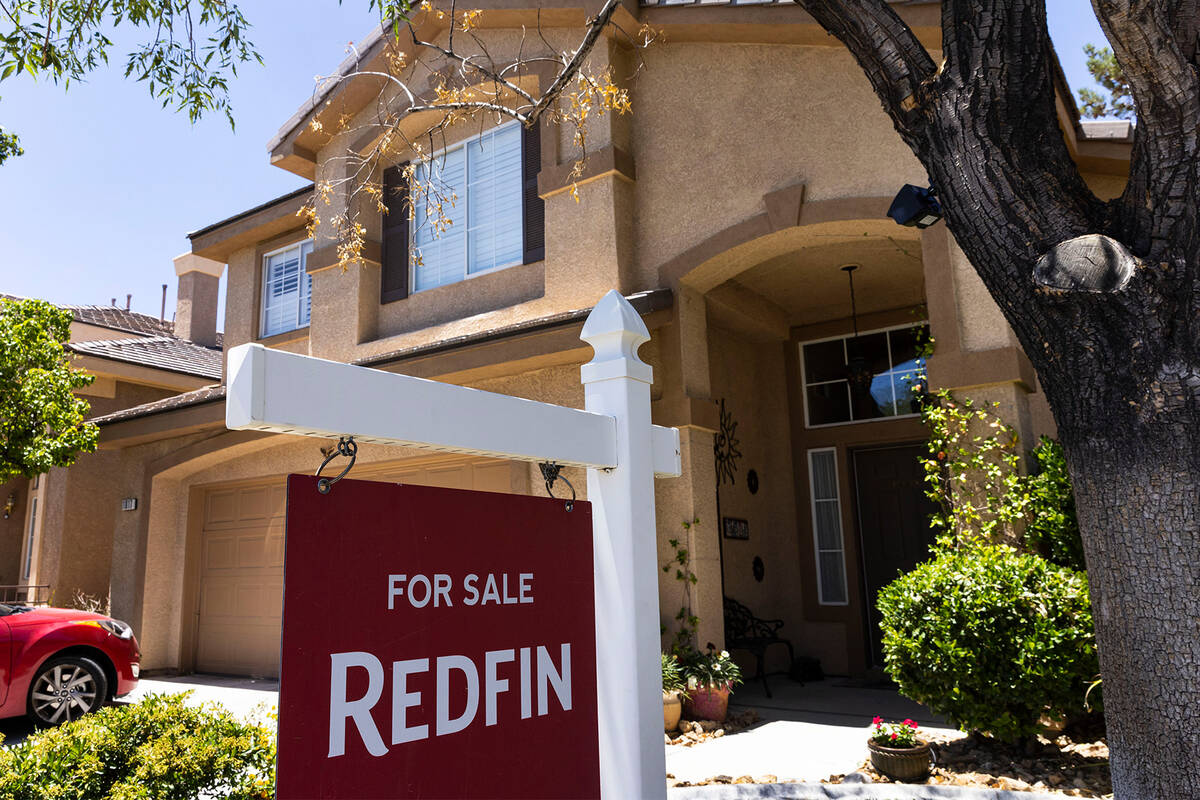Could Nevada voters change the property tax system?
Nevada lawmakers could ask voters to consider changing the state’s property tax system in a shake-up that could have big consequences for the state’s housing market and local government revenue.
Assembly members voted Assembly Joint Resolution 1 out of committee on Thursday, clearing the first Nevada Legislature deadline this session. The effort proposes amending the Nevada Constitution to effectively “reset” the taxable value of a property when it is sold to a new owner.
The state assumes the value of homes depreciate at a rate of 1.5 percent annually. It’s a formula only used in Nevada, bill sponsor Natha Anderson, D-Sparks, said when presenting the bill last month. The depreciation rate continues for 50 years, even if a property is sold during that period.
Property tax increases are capped at 3 percent annually for owner-occupied homes through partial abatements passed into law in 2005. The combination means some older homes end up with a lower property tax assessment than newer homes — even if they’ve been modernized through renovations, Anderson said.
The result is a “structural unfairness” that leads to less funding for local governments and school districts, who rely on those taxes for parks, health clinics, emergency services, public works projects and more, she said.
“Our calculations, the method that we use, creates a hole in the bottom of the bucket,” she told lawmakers at the March 27 hearing.
Dylan Shaver, a lobbyist for New Day Nevada and a former city of Reno executive, said the system needs reform.
“We’re left with a situation where you can have a three-bedroom, two-bath in Inspirada that was built yesterday that ends up with a significantly higher tax bill than somebody who lives in Rancho Circle or the Vineyards,” he said in an interview with the Review-Journal.
As a proposed constitutional amendment, the resolution would have to pass through the Legislature twice before it comes to a general election vote in 2028. The Legislature would define the key terms “transfer” and “sale” items in 2029.
It’s not the first time the proposal has come to Nevada lawmakers. Former state Sen. Julia Ratti, D-Sparks, championed a nearly identical effort to amend the Constitution in 2017. It passed both bodies that that year but wasn’t picked up in the 2019 session.
The resolution advanced out of the Assembly Revenue Committee along party lines. During the proposal’s first hearing on March 27, Republicans on the panel called the effort a tax increase and questioned how it would affect first-time homebuyers.
Tax increase concerns
Assembly member Danielle Gallant, R-Las Vegas, asked how restructuring property taxes could be done in such an inflated housing market.
“We are having an issue with the price of housing, with workforce housing, with first-time homebuyers,” she said during the hearing. “So how is this going to beneficial for all of those constituents that would really like to get into a house and are who are currently struggling with the prices?”
It’s a concern that Nevada Realtors share. Legislative chair Azim Jessa said the group worried about how reset tax burdens could price out first-time homebuyers and retirees on strict budgets. They also pointed out how similar homes could be taxed differently because one sold more recently and wondered whether the legislation would unintentionally discourage homeowners from selling.
“AJR1 would substantially increase up-front costs for some buyers because many lenders require homebuyers to deposit money into an escrow account at closing to cover future property tax payments,” he said in an email. “The deposit requirement can range from several months’ worth of property taxes to a full year’s worth.”
Proponents — who included education, environment and firefighting groups — say the change is necessary because the current structure creates a weakened tax base that results in fewer services for residents.
The Legislative Counsel Bureau commissioned a 2019 study on the impacts of the proposal. Analytics firm Applied Analysis found the state’s taxable districts could receive an additional $13.2 billion in revenue over a 12-year period if property tax assessment values reset after sale.
Shaver countered on the opposition’s argument that this would put more pressure on new or young homebuyers. He said the homebuying process includes exploring the expected tax burden before the purchase. If property taxes increase, it will likely be reflected in the final sale price.
“It’s not like the taxpayer is given a bill at the front end, but it is a decision you make when buying a home,” he said. “That, along with the condition of the roof, along with the obviously the sale price, along with the neighborhood and everything else, roll in together to help you make a pretty complicated, long-term financial decision.”
Other groups made up of tax professionals, like the Nevada Taxpayers Association and the Nevada Assessors Association, were neutral on the bill but said they had concerns with how the change could be implemented.
The bill could go to a full vote on the Assembly floor before the next deadline in the Legislature on April 22.
Contact McKenna Ross at mross@reviewjournal.com. Follow @mckenna_ross_ on X.


















